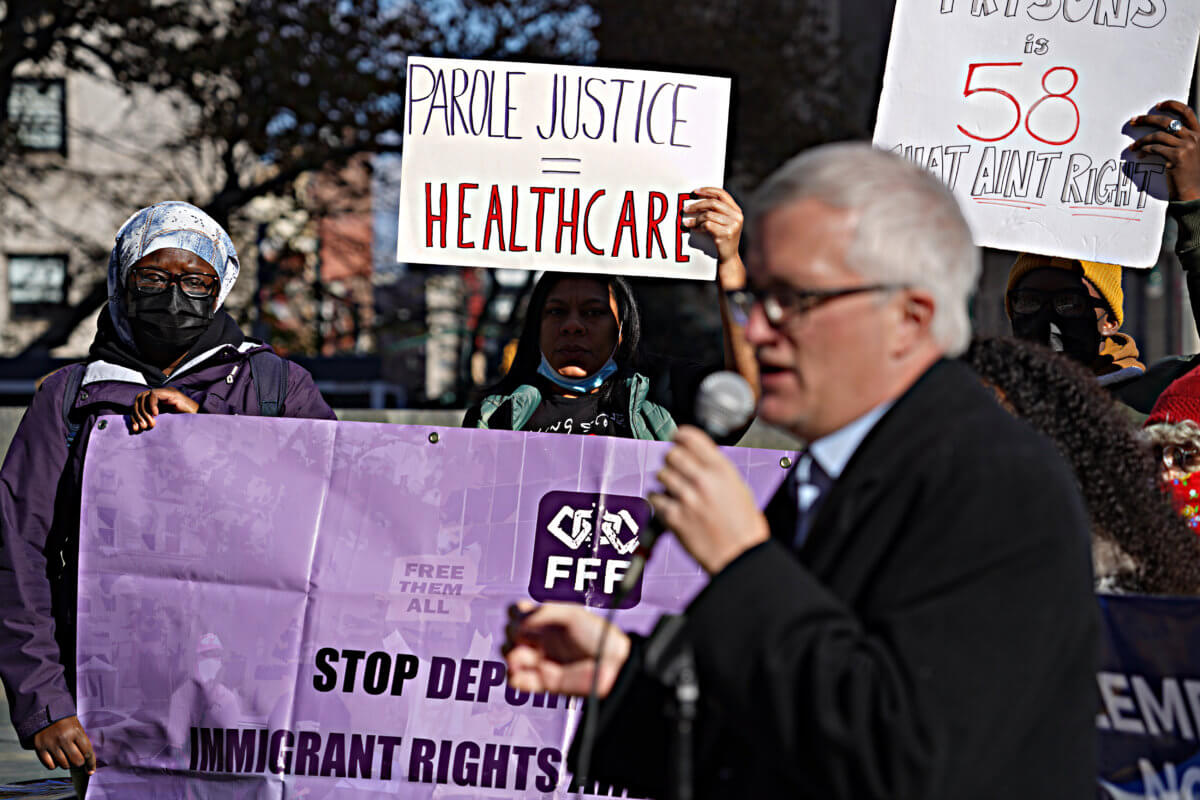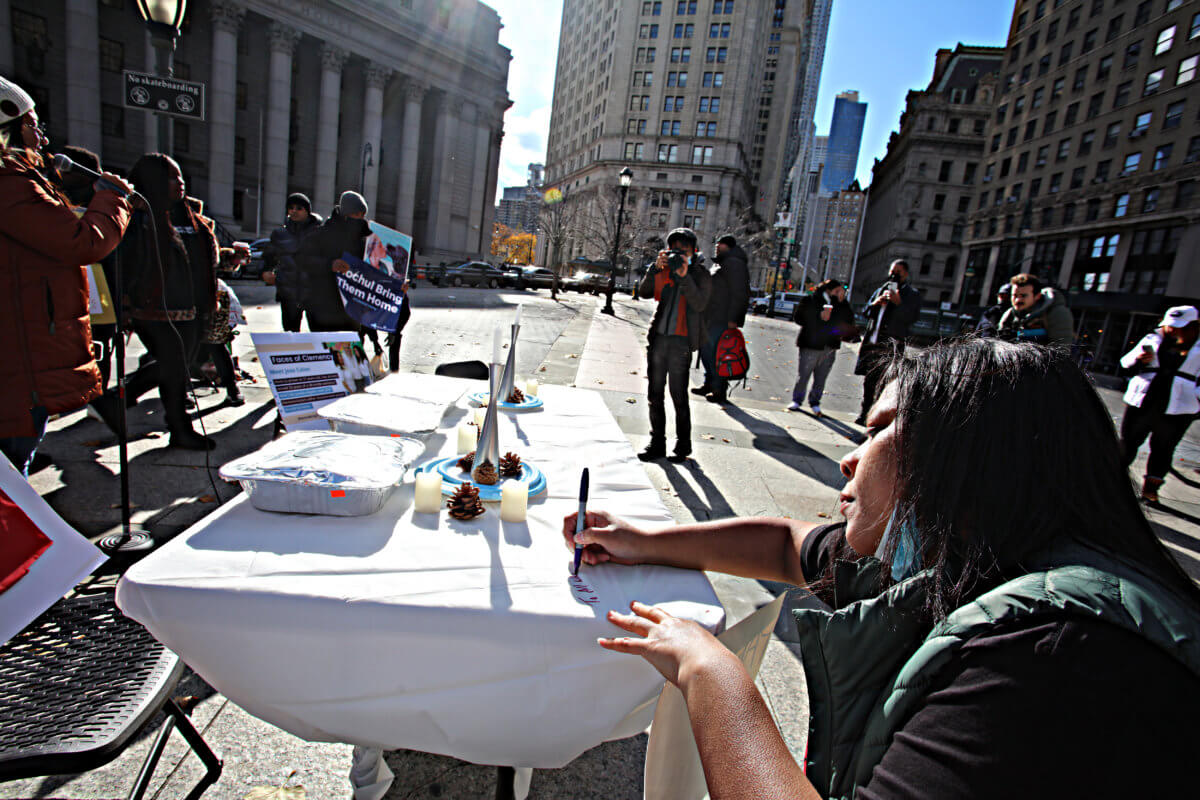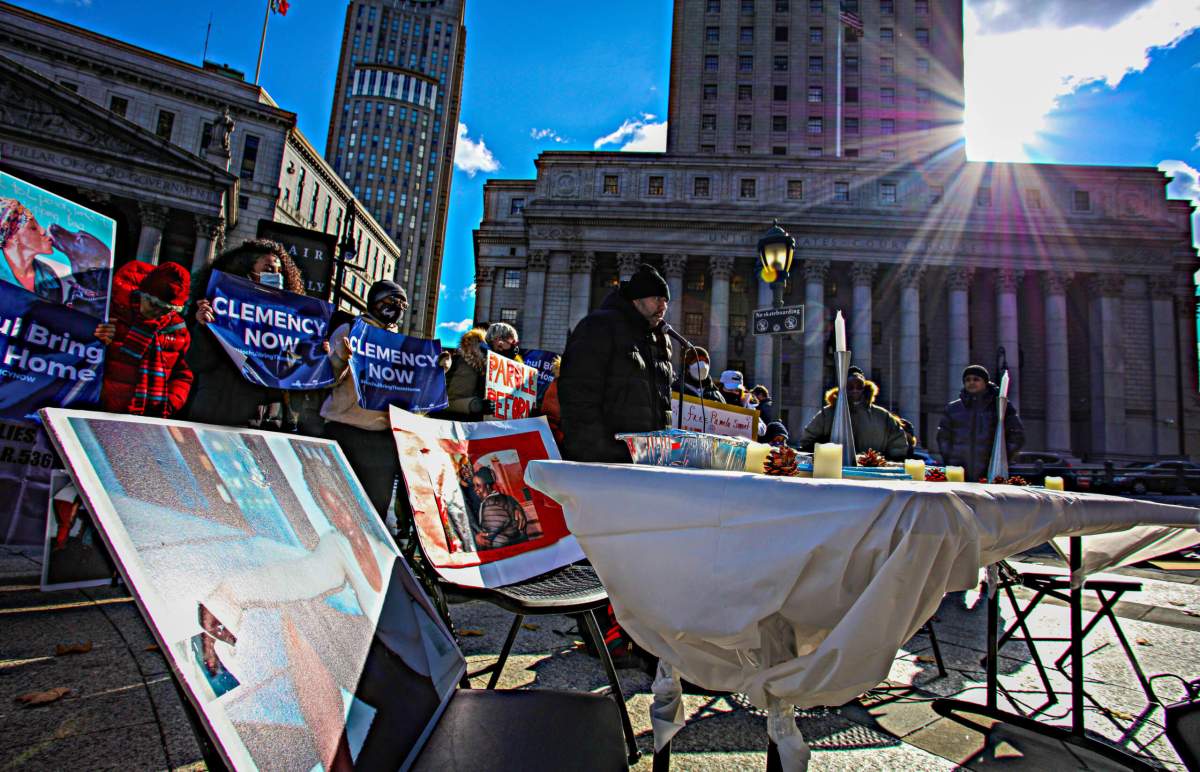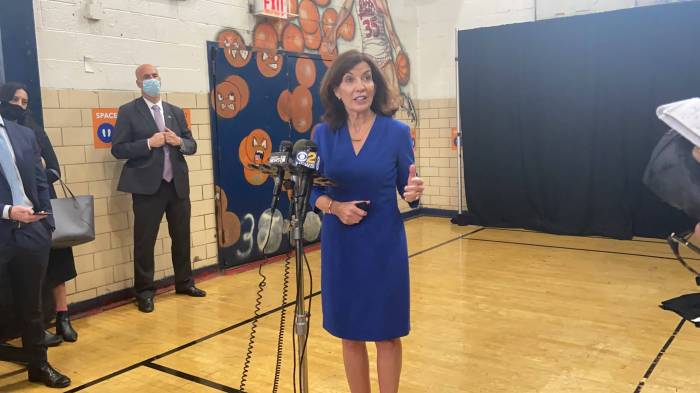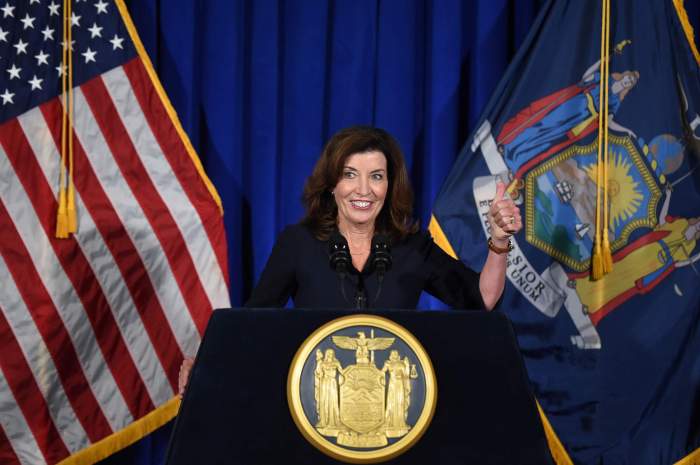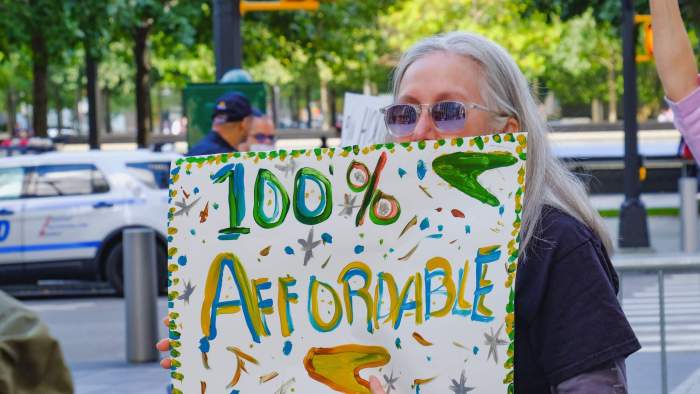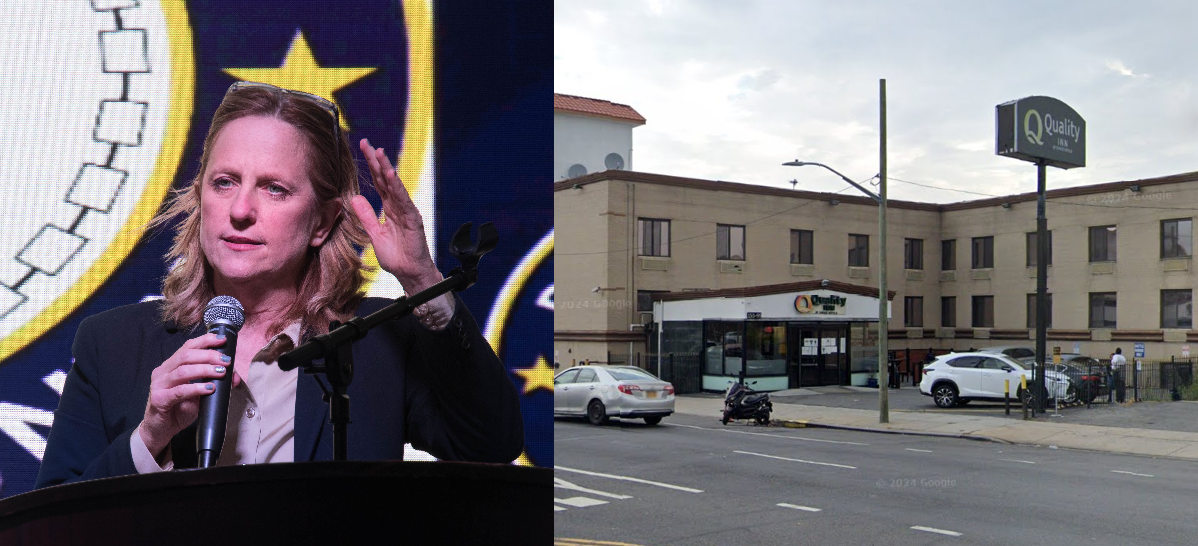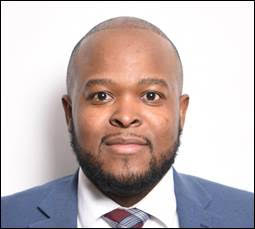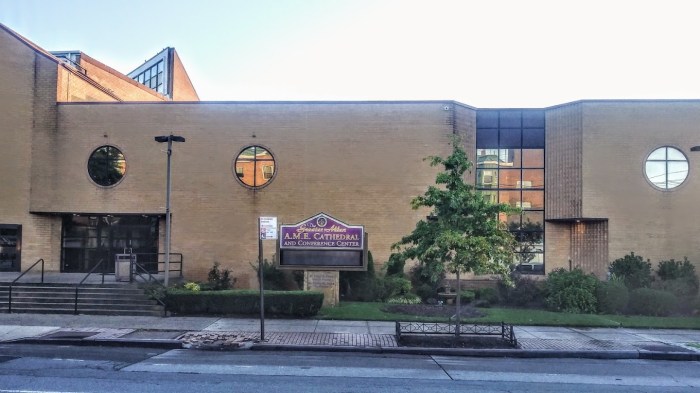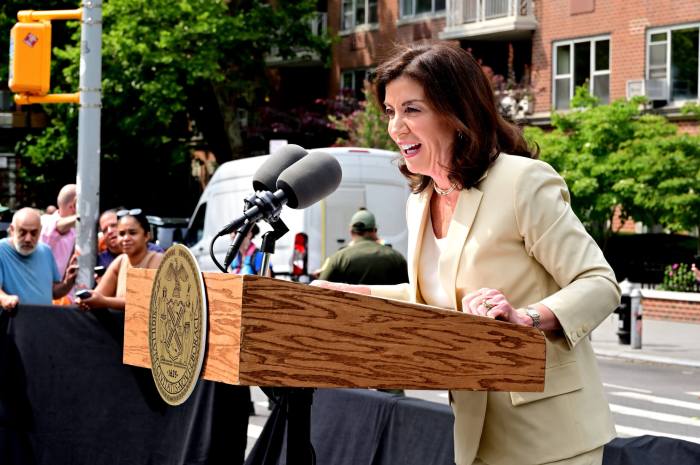Members of the Release Aging People in Prison (RAPP) community illustrated on Nov. 23, the empty seats that they will be forced to celebrate beside this Thanksgiving.
For those at Foley Square on Tuesday, an empty seat is far more than just the sum of its parts. It represents a family member who has not only missed another holiday, it also affirms the long years they have been gone — sometimes decades. It is with this in mind those within the RAPP are pleading with Governor Kathy Hochul to grant clemency to incarcerated individuals who have spent long stints in the prison system and who are aging within the state’s cold stone walls without being given fair access to parole.
“I am an impacted wife of a husband who is serving 40 years. My husband is 67 years old, he’s inside suffering with sickness, ailments that I’m afraid won’t let him get home — I just know it. Today I am asking Governor Hochul: bring them home,” Teresa Brady said, solemnly. “We need our loved ones home. They don’t need to spend another holiday, birthday, or anniversary locked in those prisons.”
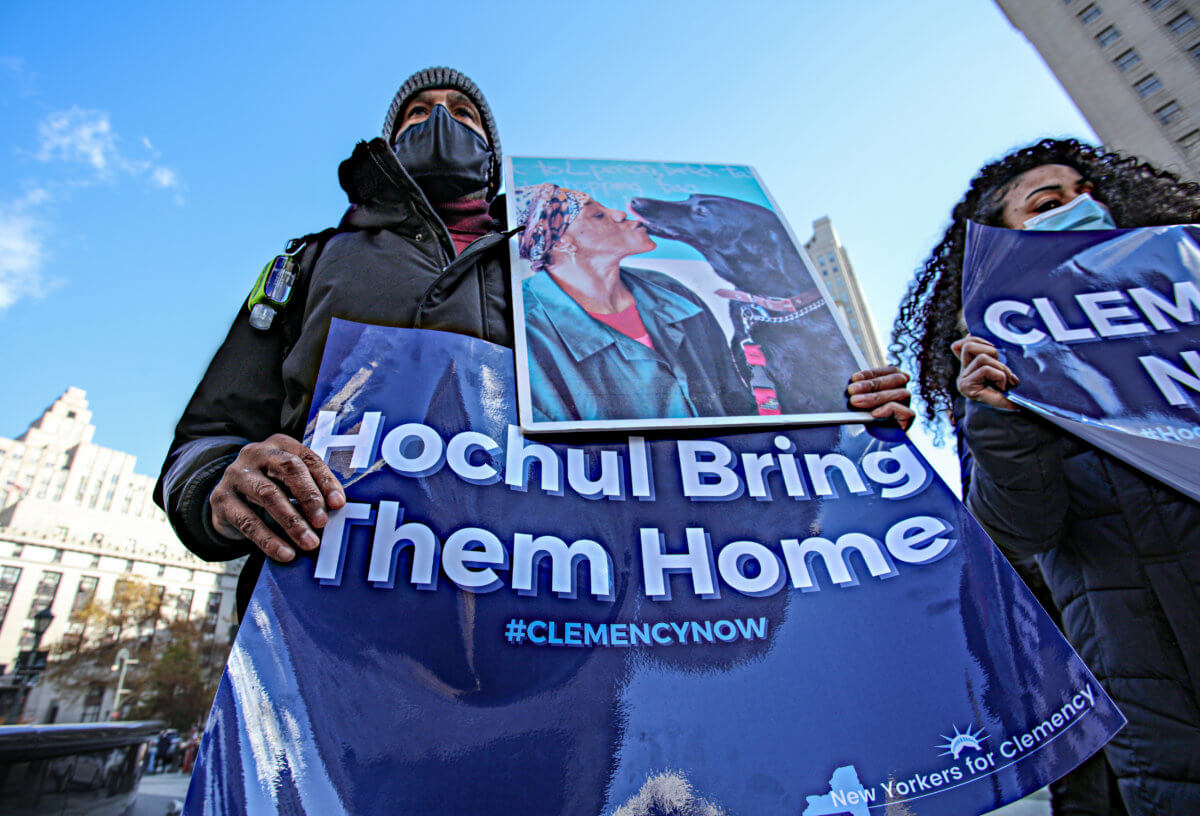
Demonstrators erected a Thanksgiving dinner table with photos of loved ones strapped to the empty chairs to showcase the faces that will be missed this year.
Advocates at the rally are pushing for the passage of the Elder Parole and Fair & Timely parole bills, both addressing issues within the current State Board of Parole system. The Elder Parole would require the board to evaluate incarcerated individuals who are 55 years or older, and have served 15 or more years. While the Fair & Timely Parole bill pushes the board to provide meaningful release reviews for all of those who are eligible.
“We want parole justice, now! We are here in solidarity with a lot of incarcerated family members and loved ones who are behind bars that need to come home already. Enough is enough,” said Janette Colon, a leader with RAPP and whose husband has been serving 23 years in prison, “It’s not right that our elders are suffering and languishing behind prison bars unnecessarily. There is a racial disparity taking place in New York State and excessive sentences that don’t do anything except harm the families that are waiting for the loved ones to come home. A lot of these men and women are doing amazing things behind bars and can come out to our community and help our youth.”
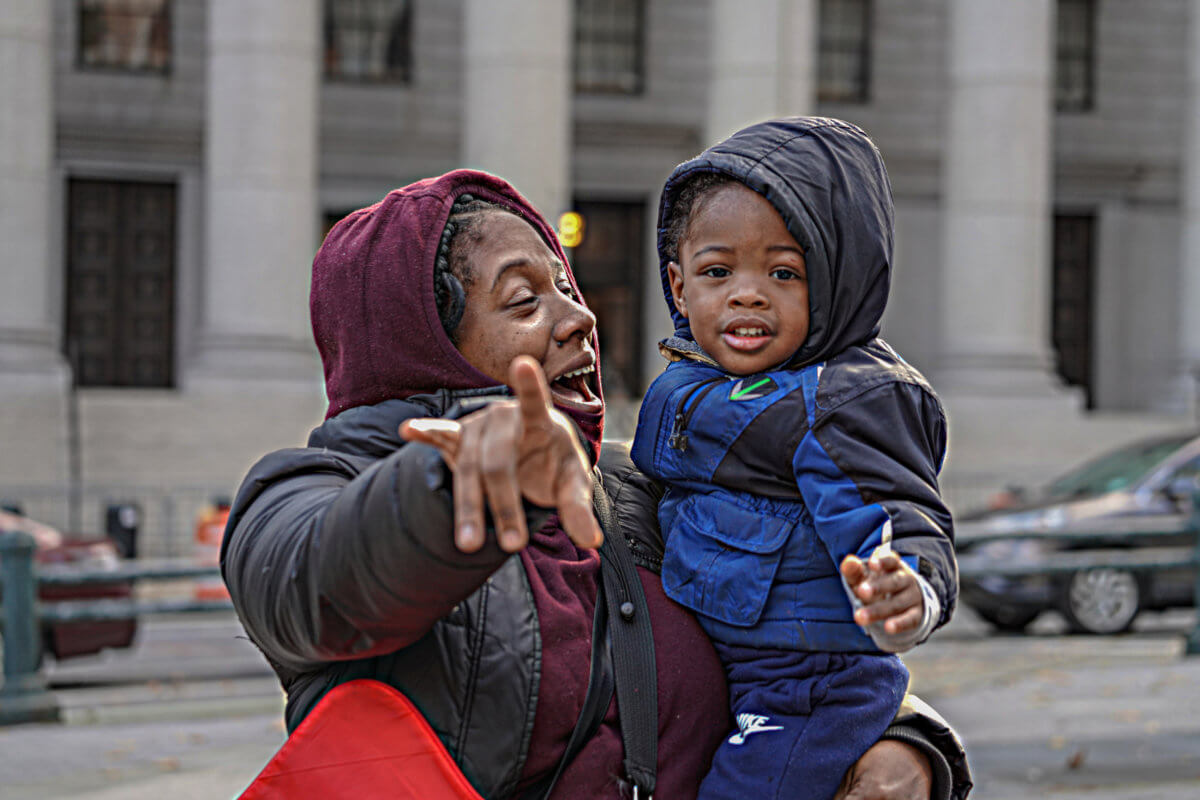
These bills help to alleviate an overpopulated prison system, attendees said, one that is such due to extreme sentencing and does not acknowledge the rehabilitation of many individuals locked away in a cell due to stigmas. Rather than recognizing the transformative change and steps to better themselves, supporters say the Parole Board focuses mostly on the crime itself.
“We have an obligation to meet those transformations that goes into the good deals with a transformed system of justice,” Senator Brian Kavanagh said, “Our system for so long has been focused on that moment when someone is accused and convicted of this thing that they did, and nothing else. We thought for many years in our society that longer sentences were going to keep people safer. Longer sentences were going to solve the problem. And we put them on the books in prior generations. We have begun to recognize that some of those sentences were absurdly long for, in some cases, minor crimes, and we’ve reformed some of those sentences. We need to continue to do that. But at the same time, we need to take steps to make sure that our criminal justice system, the so-called justice system, is not just about accountability. It is also about mercy.”
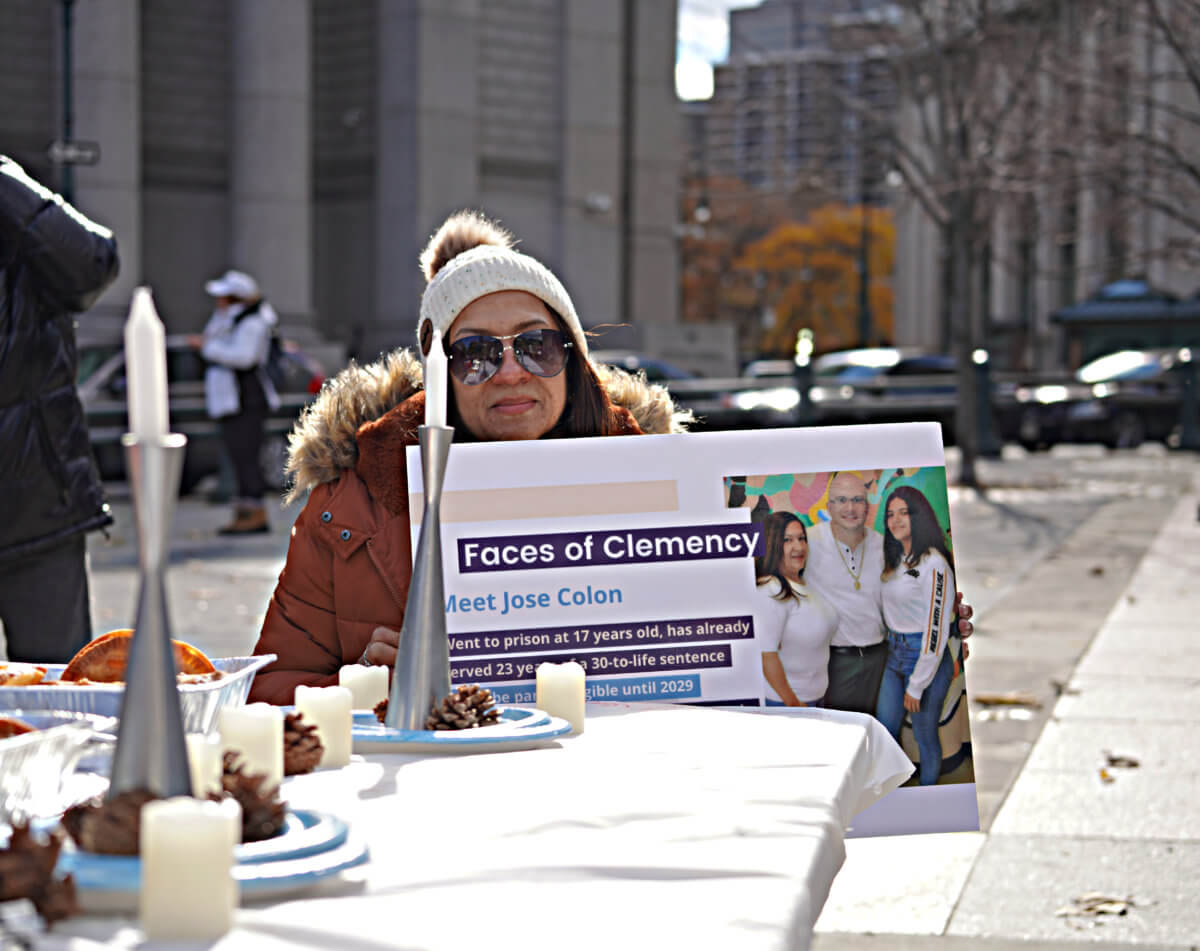
Kavanagh said he believes that as lawmakers and advocates push for reform, the only way to undo injustices that have been made throughout the years is to ensure that the parole system really works, especially for those who have been incarcerated for an excessive amount of time.
In honor of all those still languishing in prison, families ended the rally by writing messages to their loved ones on a tablecloth across a symbolic dinner table that they propped in Foley Square.
For clemency to be granted by Governor Kathy Hochul, she must first await applications to be vetted by the Executive Clemency Bureau (this unit receives and processes the submissions based on edibility criteria laid out by the governor). Upon the review, which evaluates the offences and then progress while confined, such as program participation, achievements, custodial adjustment, and others, the requests are then given to the governor to examine to decide possible clemency.
“While we cannot comment on pending clemency applications as the process is confidential, Governor Hochul is committed to improving justice, fairness, and safety in the criminal justice system, and we are reviewing applications in that context,” said Hazel Crampton-Hays, press secretary to the Governor.
